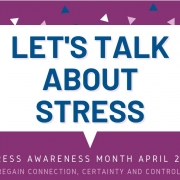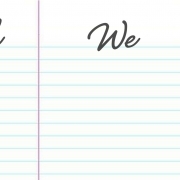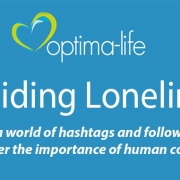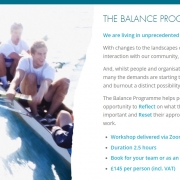Burning bright or burning out? The demands of working in times of COVID-19
Corporate burnout seems to be on the up. With research from NordPVN suggesting that, since the start of COVID-19, people in the UK are adding an extra two hours to their working day, and the BMJ reporting that a third of UK doctors have experienced burnout, it seems that the demands of work are becoming too much for too many.
To understand burnout, it can be useful to compare it to ‘overtraining’, a term that is used in endurance sports. It was in the early 1900s when the detrimental effects of excessive training were first raised, but not until the 1980s that physiologists started to look at this topic with greater interest and coined the term ‘overtraining syndrome’. They recognised that more training didn’t necessarily mean greater stamina, strength or speed; in fact, if training was overdone and an athlete kept pushing and pushing, it was possible for a drop in performance, and the risk of injury or illness could increase.
With the recovery time frame potentially being months (and sometimes longer) the consequences for an elite athlete can be severe. Performance disappears and, what is a short career anyway, can be severely impacted and in some cases ended. As a result, sports scientists will now vigorously monitor training loads, recovery and athlete wellbeing to ensure a safe level of maximal progression.
In many ways the principles of overtraining can be used to explain the concept of corporate burnout. Initially reported in the early 1970s, Herbert Freudenberger used the term to describe patients who showed a loss of motivation, increased levels of emotional depletion and cynicism.
Physiologically the response is similar to the athlete. Excessive work and minimal recovery leads to an increased release of the stress hormones adrenaline and cortisol. These hormones can help us to keep going, but if the levels rise too much, they can have a corrosive effect on brain and body. Ultimately, the increased production of adrenaline and cortisol can only last so long; if the body is continually pushed the adrenal glands can become fatigued, they stop producing the hormones, and ‘burnout’ occurs.
Burnout can feature symptoms such as body aches, weight loss, a drop in blood pressure and a loss of body hair, but the biggest challenges can often be the sense of fatigue, apathy and reduced self-esteem. In the most severe cases people simply find it impossible to muster up the energy to get out of their house. Sometimes associated with a diagnosis of chronic fatigue syndrome, the condition can be emotionally demanding and the relationship with oneself or with others can be strained.
Burnout in its most serious form will mean time off work, however it is a word that is being increasingly used in the workplace to describe what traditionally would have been considered the pre-burnout phase. In their book ‘Learning From Burnout’, authors Tim Casserley and David Megginson suggest that the following traits are commonly seen in people who subsequently suffer from burnout:
- Over identifying with work
- Desire for recognition and fame
- Promotion as a signal for recognition
- Fixation on goals and action/over reflexivity
- Craving for credit
- Absorbing organisational culture
- Perfectionist
Having worked with organisations and individuals where burnout has been seen, it clearly can be detrimental. Modification of workload, hours and coaching are all useful, but these reactive strategies need to be complemented by the proactive and this is an area where businesses may need to pay more attention (especially with the reduced face to face contact that is currently encouraged). If a bath is overflowing the floor will need to be mopped and the taps turned off. When it comes to burnout businesses seem to focus on the former and forget about the latter. Education and the development of a supportive culture is the corporate equivalent to turning off the taps.
With the 24/7 nature of international markets, the encouragement of an entrepreneurial spirit and the plethora of mobile communications the world of work was tough enough pre-2020; put COVID-19 into the mix and the demands have been ramped up another notch. Whilst an athlete being unable to compete at their desired level, or a worker not hitting their targets may seem minor, the Japanese have recognised that the consequences can be severe. They have a word ‘karoshi’, that simply means ‘death due to overwork’ – what a dreadful way to go!
If you are feeling that you are low on energy and are on the edge of burnout, you may be interested in our latest programme – Beating Burnout.











